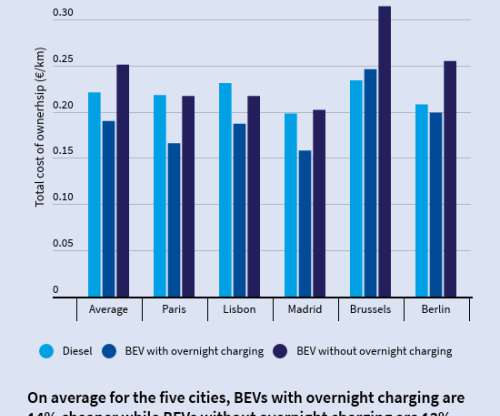T&E study: EVs can be cheaper for Uber drivers to run than latest diesels in many European capitals
Green Car Congress
JUNE 18, 2020
Electric cars are becoming an attractive business proposition for high-mileage vehicle operators such as ride-sharer Uber in key EU capitals such as Paris, Berlin, Madrid and Lisbon, a new study by research and campaign group Transport & Environment (T&E) has found. —Yoann Le Petit, new mobility expert with T&E.












Let's personalize your content